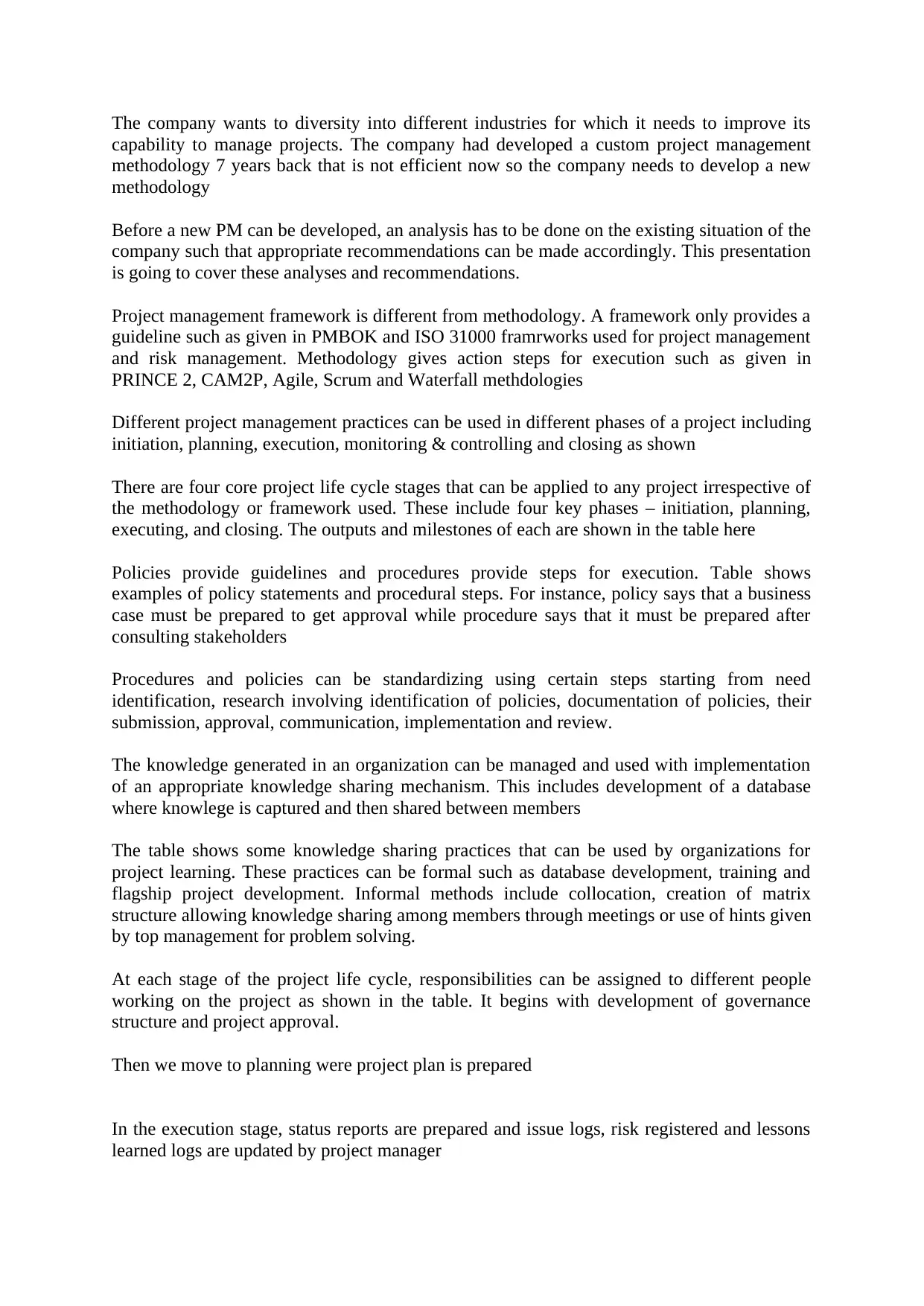Project Management: Analysis and Recommendations Report for Company
VerifiedAdded on 2020/03/23
|2
|568
|126
Report
AI Summary
This report provides a comprehensive analysis of project management practices within a company seeking to improve its project management capabilities. It explores the need for a new methodology, given the limitations of the existing one. The report highlights key aspects of project management, including the distinction between project management frameworks and methodologies, and the importance of the project lifecycle stages (initiation, planning, execution, and closing). It also discusses knowledge management practices, such as database development and knowledge sharing, and assigns responsibilities across different project stages. Finally, it provides recommendations to enhance current practices, including the establishment of a Project Management Office (PMO), template development, and the implementation of effective knowledge management systems to improve overall project success.
1 out of 2








![[object Object]](/_next/static/media/star-bottom.7253800d.svg)